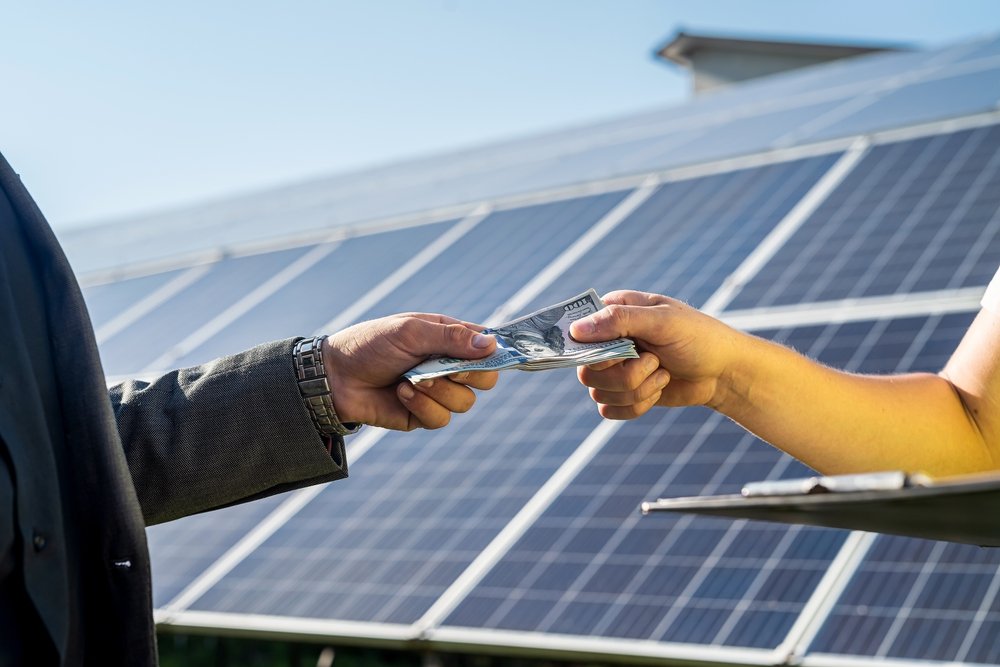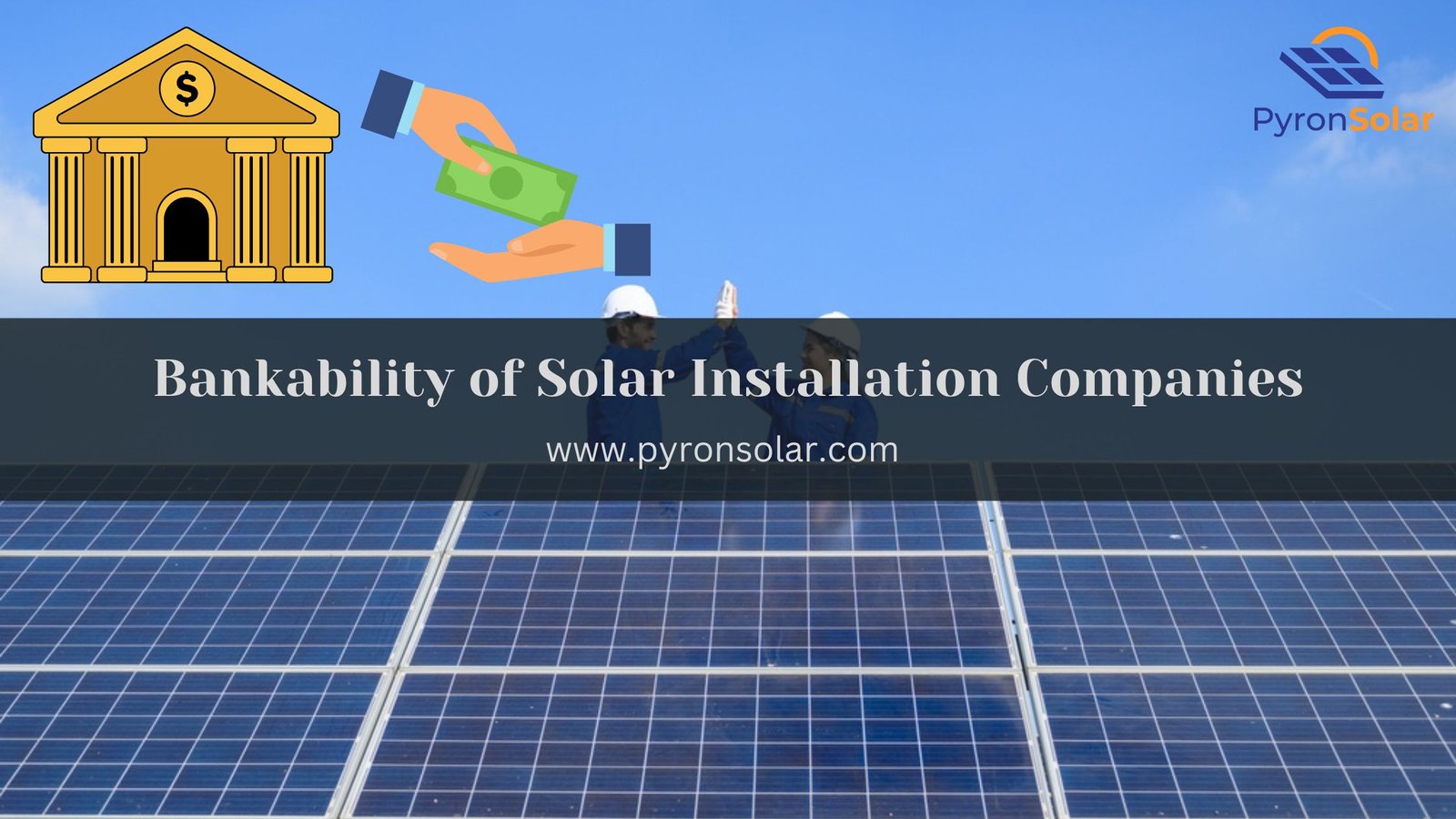The bankability of solar panel system installation companies can be assessed utilizing the Altman Z-Score, BNEF ranking, gathering data from independent testing, and checking the reviews and reports of equipment quality and warranty coverage.
Typically, bankability means the project’s level to provide success to the lenders and investors. In simpler terms, the solar market has the certainty that the company is trustworthy and the buyers’ willingness to invest more funds.

One of the main reasons why bankability is an important consideration for solar installers is that investors have a clear idea of the returns and risks involved in a project. Most importantly, you can determine the business and technical requirements for the long-term success of your financial investments. However, you need to understand the common warning signs that indicate a company might not be financially stable and as a client how you need to respond to the red flags.
What is Bankability? Why is it essential?
Bankability in the context of solar installation companies refers to the confidence that the investors and lenders have in an organization’s reliability. It means that the financial companies are ready to invest in a project at an affordable interest rate on the manufacturer’s panels considering it as a suitable investment.
The bankability of your solar panel manufacturer is a critical factor in the decision-making process since it takes into account the equipment quality and warranty coverage to guarantee the long-term success and stability of solar projects. Mainly, it helps to get a clear concept of how bankable a manufacturer is before you decide on the type of panels to be installed.
Bankability reflects the quality of solar panels and the reliability of warranty coverage for solar panels in the following ways:
- Quality: Bankable manufacturers are well known for producing top-quality solar panels such that they should generate energy efficiently with little maintenance to satisfy the industry standards.
- Warranty Reliability: Bankable manufacturers strictly adhere to solar warranties that include providing support throughout the specified period to compensate for any repairs or replacements.
Assessing the Bankability of Manufacturer
Evaluating the bankability of a manufacturer isn’t a straightforward process. This is because you need to understand a few important metrics to determine the bankability of your solar panel manufacturer. It includes utilization of Altman Z-Score, bankability reports, collecting data from independent testing, and checking reviews that vary over your warranty period, which will be discussed in detail.
Utilizing Altman Z-Score
The Altman Z-score is a financial measurement tool that indicates the manufacturing company’s chances of becoming bankrupt within two years by obtaining a value using the credit strength calculation. Different variables are taken into consideration to evaluate the company’s financial stability, such as:
- Working capital
- Retained earnings
- Equity market value
- Earnings Before Interest and Taxes (EBIT)
- Total Sales
- Overall Assets
- Overall Liabilities
These variables are used to calculate Altman Z-Score with the help of the below-mentioned formula:
Altman Z Score = 1.2A + 1.4B + 3.3C + 0.6D + 1.0E
The below-mentioned five ratios use numerous variables to calculate the Altman Z- Score, such as:
- A= (Working Capital) ÷ (Overall Assets)
- B= (Retained Earnings) ÷ (Overall Assets)
- C= (EBIT) ÷ (Overall Assets)
- D= (Equity Market Value) ÷ (Overall Liabilities)
- E= (Overall Sales) ÷ (Overall Assets)
A higher Altman Z-Score indicates higher financial stability of a solar panel manufacturer with fewer chances of facing bankruptcy, which proves essential for installers and investors relying on long-term performances and services of solar panels.
Here is an analysis of the Altman Z Score that indicates if the company might file for bankruptcy or not:
- Greater than 2.99: A company is in the safe zone and has a lower chance of going bankrupt for the next two years if the score is more than 2.99.
- 1.8 to 3.0: The company is in a gray zone financially with a medium risk of filing for bankruptcy, if the score is between 1.8 and 3.0.
- Less than 1.8: The company is in financial crisis, indicating a higher chance of becoming bankrupt.
The challenges of using the Altman Z score include heavy dependence on past data, lower accuracy, abnormalities undetected, and non-suitability for businesses at an early stage.
Bankability reports
Bankability reports are in-depth reviews that help lower-level buyers evaluate if they are investing in the most suitable products for different types of project requirements. It refers to the financiers’ willingness to invest in technology based on the manufacturer’s reliability and data that indicates the quality and long-term durability of solar panel systems.
The reports provided are essential for investors, financiers, and solar installers as they provide valuable information about a manufacturer validating warranties and offering top-quality products.
Typically, bankability reports consist of evaluating the company’s financial and technical aspects, quality and reliability, manufacturing factory audit, product support, and installations.
Bloomberg New Energy Finance (BNEF) rankings assess the bankability of solar panel manufacturers as tier 1 if they have their brand name and manufactured products for six different projects financed by six varying commercial banks in the previous two years. In simpler terms, the companies are evaluated based on their financial stability and position in the market.
The drawbacks of BNEF reports include their limited scope, market variability, uncertainty in government policies and regulations, and complex data.
Data From Independent Testing
Independent testing data is important in the solar industry to provide accurate verification of the performance and reliability of solar panels. The data ensures that the solar panels comply with the industry standards and perform according to the expectations to build consumer confidence. Also, it mitigates the financial risks and promotes transparency in the market, allowing buyers to compare multiple products based on standardized criteria.
Independent testing labs like PV Evolution Labs (PVEL) play a crucial role in the solar industry by supporting the worldwide PV buyers community by encouraging the adoption of renewable energy. They collaborate on the best testing and inspection practices with top labs around the world so that the solar PV modules perform at their best level.
A PV Module Reliability Scorecard is the annual report published by PV Evolution Labs (PVEL) that assesses the performance and reliability of solar panels from top manufacturers that have demonstrated superior performances.
Consumers, installers, and investors can use the PV Module Reliability Scorecard to make better decisions that help to select reliable modules from manufacturers that minimize the risks of project failures in the future. Mainly, investors can make use of the scorecard to compare different modules based on the generally accepted test results and select high-performing devices to ensure a better return on investment.
Checking Reviews
One of the simplest ways to understand a manufacturer’s bankability is by taking a look at the reviews. In other words, manufacturers are expected to produce top-quality equipment and withstand in the business for longer periods if there are more positive reviews, which can prove beneficial for financial companies and investors.
To find trustworthy reviews of solar panel manufacturers, you can prefer online platforms such as:
- Forbes Home provides reviews from experts and ranks solar companies based on their top performances. This helps consumers categorize the best performers in the solar industry.
- Trustpilot ranks manufacturers with one-to-five-star ratings, explained along with its pros and cons.
- SunValue helps you find reviews and ratings of solar panel manufacturers that help customers evaluate the quality of companies.
Red Flags and Warning Signs
The common warning signs that indicate a company’s financial instability or non-reliability:
- Lack of Cash Flow: A business might have reduced cash flow if there is a fund deficiency, profits with less margin, and difficulty in paying salaries to staff members that results in frequent late payments.
- Huge Debt Levels: If the debt level is higher than equity, it indicates the company’s strained financial position.
- Inconsistency in retaining employees: A lot of time and money is spent on providing training to new employees if the staff members are replaced frequently.
- Negative Reviews: A frequent pattern of negative reviews from customers directly points out inferior product quality and service.
- Lack of Transparency: If a company doesn’t provide clear details to its employees about salary, benefits, and work-life culture, it is an indication of the poor financial health of the organization.
However, potential clients can respond to the red flags in the following ways:
- Performing in-depth research: Try to make use of financial statements, credit reports, and independent reviews to evaluate the company’s health.
- Asking for References: You can contact the previous clients and ask about their experience.
- Consulting for legal advice: If any legal disputes remain unsolved, you can contact your lawyer.
- Search for alternatives: Continue searching for other companies that have higher levels of financial stability and reliability.
- Clear Communication: You can express any issues directly to the company and ask for any clarification or reconfirmation.
Conclusion
Assessing the bankability of a solar installation company before making any decision is extremely important to ensure the longevity and success of the project. If a company is financially stable and reliable, there are risks of minimizing project failures ensuring that the warranties will be strictly adhered to, and providing quality assurance.
Furthermore, investors and financiers will support projects financed by bankable companies that enable easier accessibility to funds. It helps to reduce the risks and ensures the solar installation performs according to its expected lifespan.
Ray is an avid reader and writer with over 25 years of experience serving various domestic and multinational private and public energy companies in the USA.

